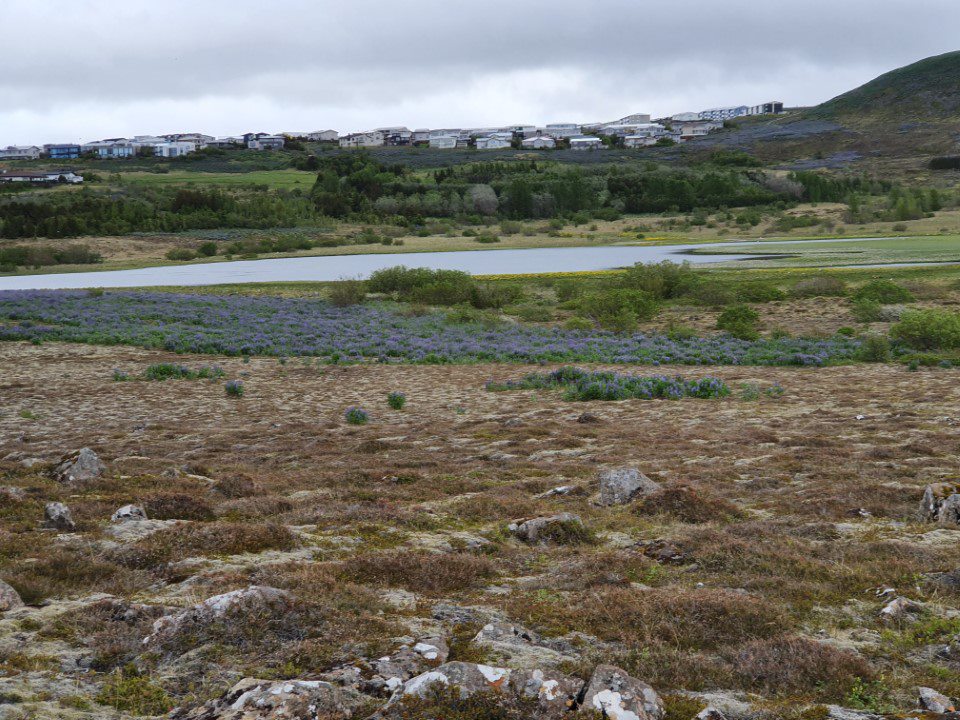Vinna við nýjar heimasíður Umhverfis- og orkustofnunar og Náttúruverndarstofnunar er í gangi. Heimasíða Umhverfisstofnunar er virk á meðan vinnunni stendur. Information in English
Astjorn, Hafnarfjordur

Ástjörn and the area around it were protected in 1978. In December 1996, the reserve was expanded with the establishment of a public park by Ástjörn and Ásfjall surrounding the nature reserve.
Ástjörn is a unique natural phenomenon that has no comparison in the immediate vicinity of the near continuous urban sprawl of the Greater Reykjavík Area. The pond and the area around are characterised by very rich flora and fauna. For example, the only horned grebe nesting area in the Southwest is found there. The species population has decreased significantly from what it was in the first half of the 20th century. The horned grebe is wholly protected and is on the threatened list. There is a lot of animalcule life in the pond, although it has not been studied much.
Ástjörn by Hafnarfjörður is in a hollow to the west below Ásfjall. The banks of the pond are moist, and to the northeast, there is a large piece of marsh down below the old Ásbær farm.
From the wetland, dry stony peat bogs take over, and trees have been planted in them on the north and east side of the pond. North of the pond are two old fields, one by Stekkur and the other by Ás.
A summary from Gunnar Ólafsson’s and Guðríður Þorvarðardóttir’s article Ástjörn Nature Reserve and Country Park published in Náttúrufræðingurinn, the Natural History Periodical, 67th edition, Volume 3–4 1998, can be accessed here. The article was based on a project done for the Nature Conservation Council in connection with the preparation of educational material about Ástjörn.
The nature reserve covers an area of 28.5 ha.
Access
Ástjörn is a popular area for outdoor activities. A footpath circles the pond. Pedestrians are allowed in the area, but during the nesting season from May 1st – July 15th, all traffic in the area is prohibited.